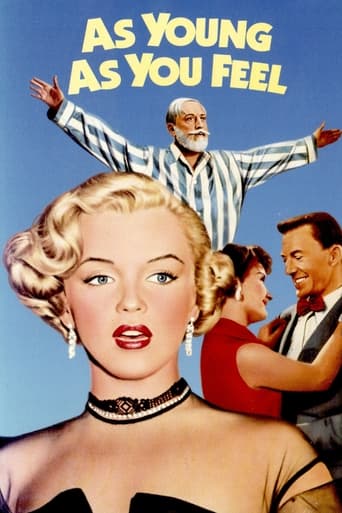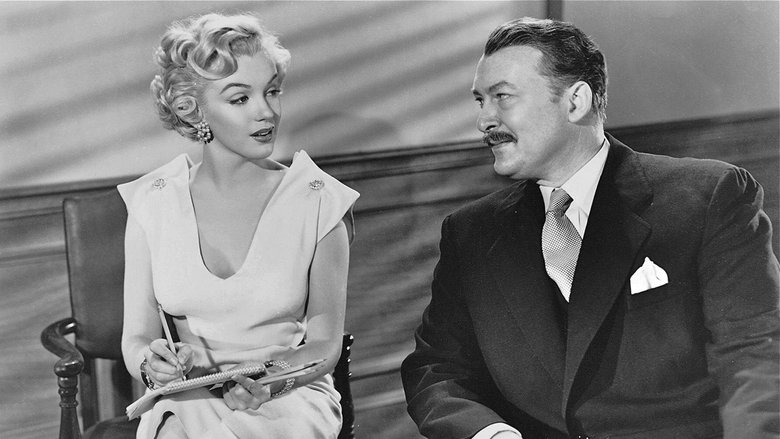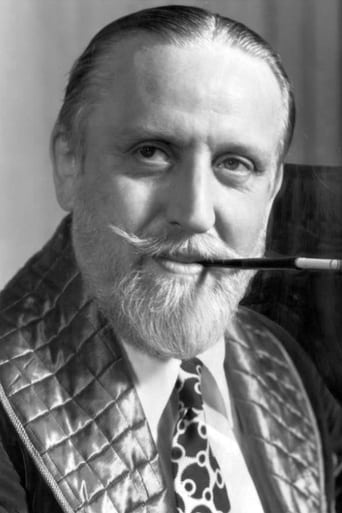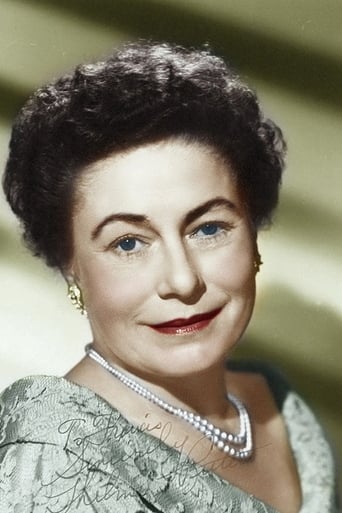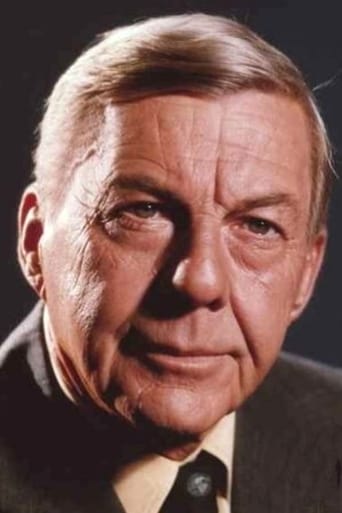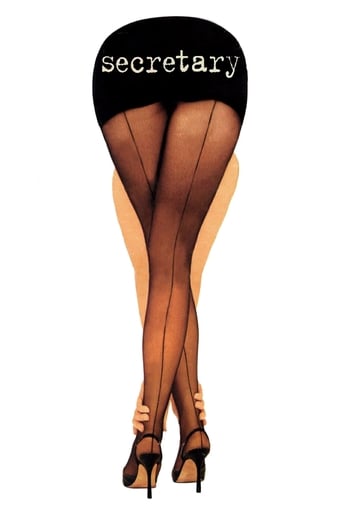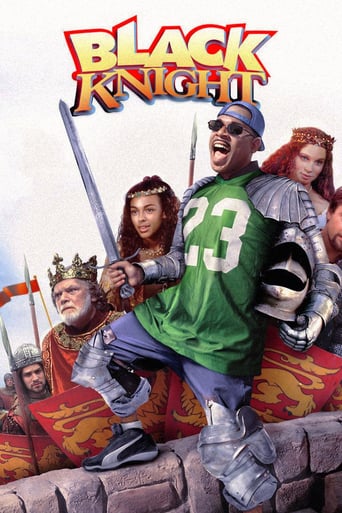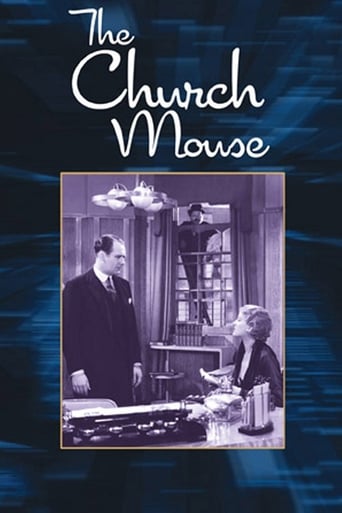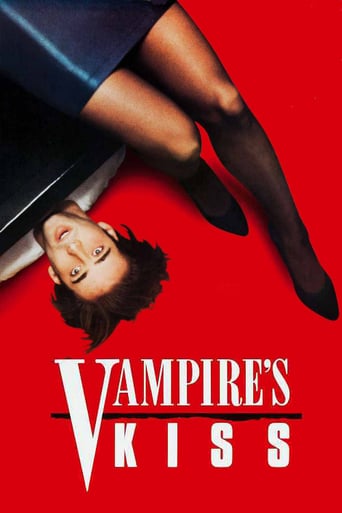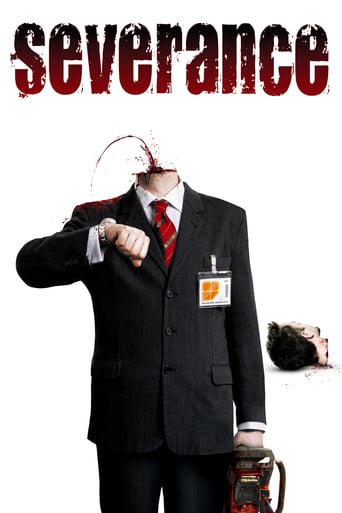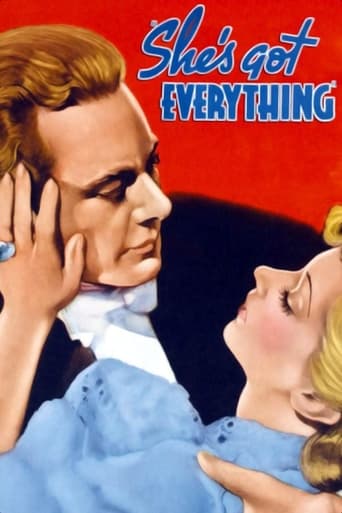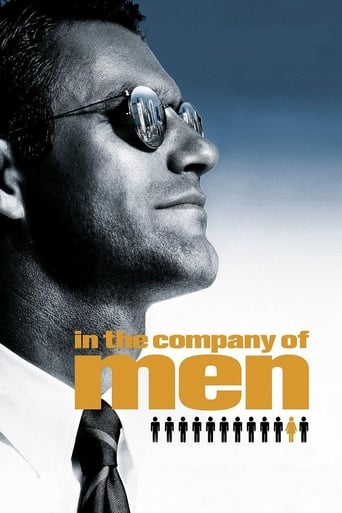As Young as You Feel (1951)
Sixty-five-year-old John Hodges must retire from Acme Printing. He later impersonates the president of the parent company and arrives at his old plant on an inspection tour. Acme president McKinley is so nervous not even his beautiful secretary Harriet can calm him. McKinley's wife Lucille becomes infatuated with Hodges. Many further complications ensue.
Watch Trailer
Cast


Similar titles
Reviews
You won't be disappointed!
A Masterpiece!
This is a small, humorous movie in some ways, but it has a huge heart. What a nice experience.
The tone of this movie is interesting -- the stakes are both dramatic and high, but it's balanced with a lot of fun, tongue and cheek dialogue.
Watching As Young As You Feel I got the impression that this was a film originally meant for that other Fox contract player Clifton Webb. It seems like just the kind of material that Webb would be doing throughout the 50s.Woolley plays a 65 year old man who is mandatorily retired from his job at a large company as a printer. He lives with his son Allyn Joslyn and his wife Thelma Ritter and their daughter Jean Peters. Woolley works with David Wayne at the company who is going out with Peters.Other than job and family Woolley's only other diversion is playing the piccolo in an orchestra. Feeling he still has a lot to contribute he decides upon an audacious plan. Putting some dye into that famous beard of his, Woolley gets some expensive threads and masks himself as the visiting head of Consolidated (General) Motors which owns the small firm he's employed at. He makes the boss Albert Dekker really jump to his attention and Dekker's wife Constance Bennett start looking in Woolley's direction. OK because Dekker has been looking at his secretary Marilyn Monroe quite lasciviously. Marilyn has only a couple of lines, but she's dressed to accent her best features.The whole thing is kind of silly, but entertaining. Good thing the real head of the firm Minor Watson has a sense of humor because Woolley was flirting with some fraud charges.Either Clifton Webb was not available or he passed As Young As You Feel By. What he passed on Monty Woolley makes adequately amusing.
The theme of this unusual comedic drama is that the policy by many companies of the time of mandatory retirement at a certain age(commonly 65 or 70) is of questionable advisability for the company and robs many still quite capable seniors of some of their potentially most productive years, as well as an opportunity to help support themselves and perhaps others. There are, of course, various reasons why a company might feel it benefits from a mandatory age cut off.. Older workers typically cost more in salary and health insurance. They generally have much more health issues. Many will have lost their youthful zip or feel burned out. So, which policy is likely to be best for the company? Monty Woolsey, as John Hodges, argues that it's best to have some capable elderly workers around, with more work and life experiences than younger ones. Should a company's managers decide who is capable and who is not, rather than one shoe fits all?There are basically 3 personal happy endings dramatized that result from Woolley's masquerading of the CEO of the parent company of this very complex multicompany conglomerate(Consolidated Motors).Firstly, Woolley does manage to convince the president(McKinley) of his own company: Acme Printing, to rescind the policy of mandatory age-based retirement, which means that he, as a recent retiree is allowed to return to his job if he wishes. Also, 2 couples are indirect beneficiaries. His granddaughter's fiancée(Elliott) gets a promotion because his rival claimed to McKinley that Cleveland, the CEO of the parent company, was the victim of an imposter, causing McKinley to conclude that he must be crazy. Also, McKinley, was 'forced' into a reconciliation with his wife of 20 years, after she announced she would file a divorce so that she could marry the more charming and flattering Woolley(Cleveland), who was a widower. Seems McKinley had been neglecting her in recent times in favor of his young curvaceous secretary(Marilyn Monroe). But Woolley convinced her that, in the long run, she would be better off with her same-aged husband, if he reformed.So, where is the comedy, as some reviewers have asked? True, it's not a belly laugher. Partly, it's the idea that Woolley succeeded beyond his wildest dreams in not only lobbying to do away with the age cut- off, but in becoming an overnight celebrity within his company and even the newspapers, because of his superficial pronouncements on how to keep the country out of depressions and inflationary spirals. The lack of recognition of either Woolley or Cleveland by McKinley serves as a sarcastic take on the growing anonymity of workers, and even bosses, in huge plants and in huge conglomerates. Then, there's the blast of condemnation by both McKinley and other manager, when Erickson(Elliott's rival for a promotion) claims that the man they were convinced was Cleveland was an imposter. Also, when McKinley arrived at the Hodges home, looking for his wife, when the real Cleveland there claimed he was such, McKinley flew into a rage, calling him another imposter.Of course, in reality, it's implausible that a man with such a distinctive look and style of talking would be missed by his president. This is a significant, but necessary, weakness of the script.Besides Woolley, middle-aged Constance Bennett, was nearing the end of her Hollywood days. Both would find some work in TV dramas. Woolley had most often been cast as a character actor, although he had a few other leading man roles. For a man brought up in the high society of Manhattan, a graduate of Yale and Harvard, his erudite aristocratic persona came naturally. Thelma Ritter, although first billed among the women, didn't have much of an impact on the proceedings. Easily recognized by her Brooklyn accent. ...Jean Peters, as Woolley's mature granddaughter, would again be cocast with Marilyn Monroe in the popular "Niagara". Marilyn appears several times in the present film ,as McKinley's secretary and apparent lover.Did you notice that the president of Acme Printing Company and the CEO of the parent company both have the name of a US president of the late 19th century.Available as part of the Marilyn Premier DVD Collection
Yes, this is a bit of a treat for Marilyn Monroe's legion of fans, but be warned! Despite the fact that Marilyn and Marilyn alone graces the front cover of 20th Century Fox's DVD, her role is actually rather small. We keep waiting for her return in Act Three, but she doesn't make an appearance. Instead the camera focuses mostly on Monty Woolley, whose theatrically over-pitched, one-tone voice can become more than a little wearying. I'm surprised that director Harmon Jones made no attempts whatever to hose Woolley down a bit, but allowed him to run roughshod over all the other players. The lovely Jean Peters has a particularly thankless role. Not only is she pushed into a corner by Monty Woolley, but director Harmon Jones then allowed David Wayne to step all over her! As I said for Monroe fans, this movie is a must- have! Just don't expect too much!
Monty Woolley believes you're as "Young as You Feel" in this 1951 film also starring Thelma Ritter, David Wayne, Jean Peters, Allyn Joslyn, Russ Tamblyn, Albert Dekker, Constance Bennett and Marilyn Monroe.Woolley plays John Hodges, who at the age of 65, is fired from his job in a printing company due to corporate policy that no one can work past 65. Many baby boomers wish that were the case today, because in fact, they'll be working way past 65. He finds out that the company he works for is a subsidiary of a huge company that is owned by a huge corporation. Finding out the name of the President of that huge corporation, he dies his hair and whiskers and poses as the man, comes to town, tours the plant, and makes a speech in which he declares that the knowledge of our elders is critical in printing, and changes the policy.And there the fun begins. The boss' wife (Constance Bennett), feeling unloved by her husband (Dekker), falls for Hodges; his granddaughter's boyfriend (Wayne) recognizes him and tells someone else at the plant; and the corporation doesn't know what to do. This fake president has raised their stock and given them a fabulous profile, so much so that the labor union has settled their grievances with them. How can they call his bluff? I seem to have enjoyed this film more than some of the other posters. Thelma Ritter, as John's daughter-in-law, is a scream. An ex-singer who gave up her career to marry George (Joslyn), John's son, sings "Temptation" while in the kitchen - she's hilarious. Woolley is great as an older man not ready to be put out to pasture, and it's wonderful to see one of the great stars of the '30s, Constance Bennett, in a later role.This film is remembered today as early Marilyn Monroe. She plays the boss' sexy secretary, and she does a wonderful job. It's a small role, but you can definitely see that she, Peters, who plays the granddaughter, and David Wayne are all getting the star buildup and are each at different stages of it. Monroe was just about to break through, and she and Wayne would appear together in "How to Marry a Millionaire" (where he says, "I already think you're quite a strudel.") Entertaining and definitely worth seeing.

